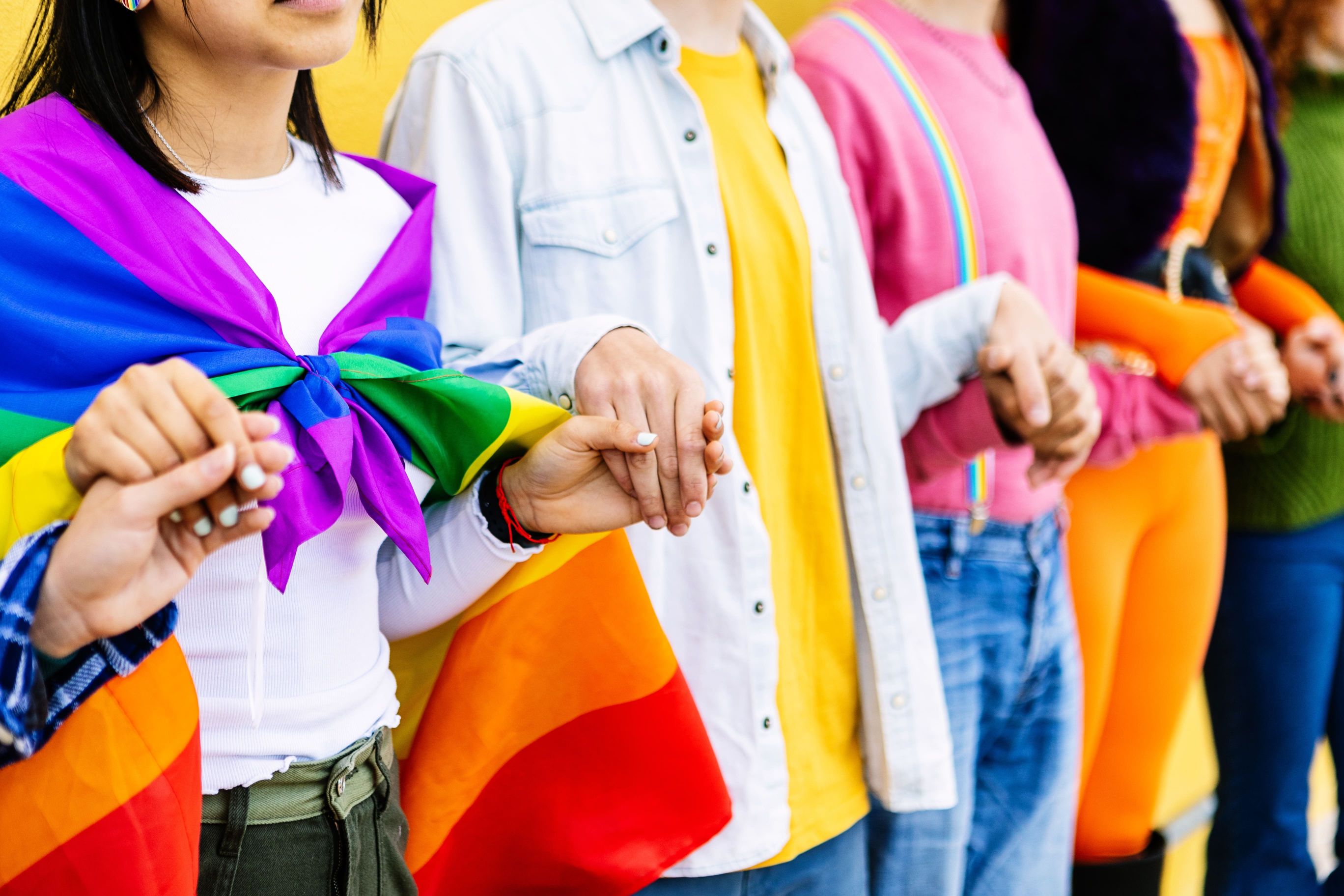On the evening of 28th June 1969, gay rights were about to change forever. In a small inn in Greenwich Village, New York, the patrons said no more! Stonewall Inn was the catalyst for all modern LGBTQ+ rights, that initial spark leading to the formation of global advocacy groups. Those riots highlighted the widespread discrimination and harassment faced by LGBTQ+ individuals and galvanized a community to fight for equal rights and acceptance.
As I look to the past, I see how society progresses and challenges persist. The future of Pride must be dynamic, inclusive, and ever relevant. However, I worry about the future. There has been an upsurge in hate crimes towards the LGBTQ+ community in recent years, with a 30% increase in Ireland alone. Now, more than ever, we need Pride, and my article explores the potential trajectories and evolving significance of Pride in the coming years.
In some ways COVID, for me, was a time that Pride might have gone back into the closet as such, but this time saw accelerated adoption of digital platforms, leading to virtual Pride events worldwide. This shift showcased the potential for technology to enhance accessibility and inclusivity, allowing people from remote or conservative areas to participate. The future of Pride will likely see a hybrid approach, combining physical events with virtual components. This integration will ensure broader participation, facilitate global connections, and offer new ways to experience and celebrate Pride. We must use our platforms to explain the importance of Pride in an ever-changing landscape
As the LGBTQ+ community becomes more diverse, the importance of intersectionality—acknowledging the interconnected nature of social categorizations such as race, class, and gender—has become increasingly apparent. This conversation has come more into the public domain with the focus on transgender athletes competing on a level playing field and the debate sparked by J.K. Rowling around menstruation.
For me, future Pride celebrations will likely place greater emphasis on intersectionality, ensuring that all voices within the community are heard and represented. This focus could involve more inclusive programming and a commitment to addressing the unique challenges faced by marginalized subgroups within the LGBTQ+ community, such as people of color, transgender individuals, and those with disabilities. By embracing intersectionality, Pride can become a more comprehensive and representative celebration of diversity.
While Pride is a celebration, it is also a platform for advocacy and political activism. Despite significant progress, the LGBTQ+ community continues to face legal and societal challenges worldwide. Imagine, in this day and age, that 64 countries worldwide still criminalize same sex activity. Future Pride events will likely intensify their focus on activism, pushing for legal reforms, fighting discrimination, and advocating for the rights of LGBTQ+ individuals globally.
This renewed emphasis on activism will involve collaborations with other social justice movements, recognizing that the fight for LGBTQ+ rights is intertwined with broader struggles for equality and human rights. A great example here, and which applies to me personally, is having equality for children of LGBTQ+ parents. I currently do not have the right to consent to medical procedures for my daughter. Pride will serve as a unifying force, mobilizing communities to advocate for comprehensive social change.
The growing visibility of Pride has attracted corporate sponsorships and involvement, which can provide crucial funding and support. However, this relationship has also sparked debates about authenticity and "rainbow-washing"—the practice of companies superficially supporting LGBTQ+ rights for marketing purposes without genuine commitment. You only need to look at how corporate sponsors of Pride change their messaging in countries that do not support the rights of our community.
The future of Pride will demand greater accountability and authenticity from corporate partners. Companies will need to demonstrate genuine support for the LGBTQ+ community through year-round policies and actions, rather than merely capitalizing on Pride for publicity. This shift will encourage corporations to become true allies in the fight for equality, using their influence and resources to drive meaningful change.

In Atlas we are building our pride community, I feel safe in the knowledge that I can be true to myself and bring all of me to work. We have a diverse management team and give support day to day to our community. We are finding ourselves in the corporate world and need to bring our Pride to the market.
While Pride has its roots in the Western world, its future lies in embracing a truly global perspective. As mentioned, many countries still criminalize homosexuality and persecute LGBTQ+ individuals, making international solidarity crucial. Future Pride celebrations will need to amplify voices from these regions, raising awareness of their struggles and supporting their fight for equality. By fostering global solidarity, Pride can help build a worldwide network of support, advocacy, and resources. This international approach will strengthen the movement, highlighting the universal nature of the fight for LGBTQ+ rights and ensuring that no one is left behind.

As environmental concerns grow, the future of Pride will also need to address sustainability. Organizers will increasingly prioritize eco-friendly practices, such as reducing waste, promoting public transportation, and using sustainable materials. This commitment to environmental responsibility will reflect the broader values of the LGBTQ+ movement, emphasizing the importance of protecting the planet for future generations.
Inclusivity will remain a cornerstone of Pride's future. Efforts to make events more accessible to people with disabilities, economically disadvantaged individuals, and other marginalized groups will continue to expand. By ensuring that Pride is a welcoming and inclusive celebration for all, the movement can live up to its ideals of diversity and acceptance.
The future of Pride can be bright. We all have a part to play. Pride can promise to be more inclusive, intersectional, and impactful than ever before. By embracing technology, emphasizing advocacy, demanding corporate responsibility, fostering global solidarity, and committing to sustainability, Pride can continue to evolve and inspire. As the LGBTQ+ community faces new challenges and opportunities, Pride will remain a vital force for celebration, connection, and progress, ensuring that the fight for equality and acceptance marches on.


